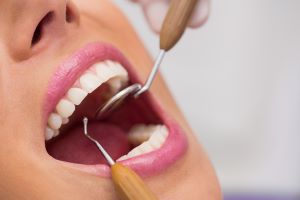 So your dentist tells you that it’s time to remove your wisdom teeth. Depending on your specific problem, this may mean your dentist will remove them in their office or they might decide to refer you to an oral surgeon. In either case, removing your wisdom teeth is a fairly simple procedure, and you’ll be back to your old self in no time. Here’s what you should know if you need to have your wisdom teeth removed.
So your dentist tells you that it’s time to remove your wisdom teeth. Depending on your specific problem, this may mean your dentist will remove them in their office or they might decide to refer you to an oral surgeon. In either case, removing your wisdom teeth is a fairly simple procedure, and you’ll be back to your old self in no time. Here’s what you should know if you need to have your wisdom teeth removed.
Why do wisdom teeth need to be removed?
There are a number of reasons why it might be necessary to remove your wisdom teeth. Your wisdom teeth are the third molars that come in at the back of your mouth. You have four — two uppers and two lowers. They typically come in sometime between 15 and 25 years of age.
When they come in, however, they can cause problems. Typically, your dentist may decide to remove them for one of four reasons.
- They have cavities or gum disease.
- They are coming in at an odd angle.
- They are impacted.
- Your mouth is too small.
What to expect before surgery
You’ll want to talk with your dentist or oral surgeon before the procedure. You’ll want to tell them about any health problems you have, including any drugs you are taking.
This is also your opportunity to ask any questions you have and discuss the type of anesthesia required. Sometimes your dentist or oral surgeon will just numb your mouth, but in more complicated cases, they may want to use general anesthesia.
Finally, this will be your opportunity to make sure you plan for the recovery period after surgery. You can make sure you have time off work or you may need to set up appropriate child care, pet care, or even arrange for a ride home.
What to do after your dentist removes your wisdom teeth
You may have stitches to make sure the wounds from surgery stay closed. Your surgeon will usually use stitches that will dissolve after about a week. While these stitches stop most of the bleeding, your dentist may also put gauze pads in your mouth, which you’ll notice when you wake up.
After you get home, you’ll want to have some ice packs ready for any swelling, and you might also want to use a moist heat pack for jaw pain. You can help alleviate that pain by gently opening and closing your jaw, and you can rinse your mouth with salt water to keep the wounds clean.
You’ll also want to eat soft foods like pasta or soup and drink plenty of fluids. On the second day following surgery, you can gently start brushing your teeth. Of course, you’ll want to take any prescribed medications as instructed and call your dentist if something seems off.
Finally, don’t drink through a straw since that can loosen blood clots, don’t rinse your mouth or brush too harshly, don’t eat crunchy foods, and don’t smoke, as that can slow your healing.
Final Thoughts
Having your wisdom teeth removed can be a little scary, but we’ll be happy to answer all your questions and put your mind at ease if you need this done. Call the office of Barry H. Buchanantoday for a consultation.
Image: Freepik

